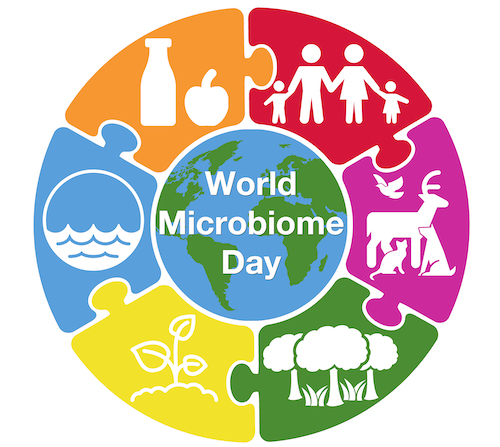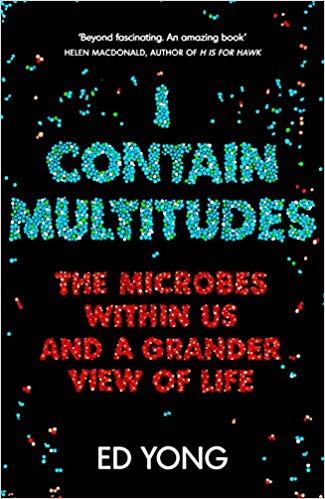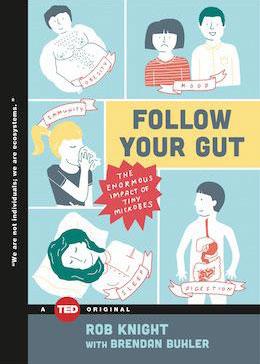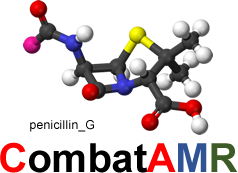Your body is teeming with tens of trillions of microbes. It’s an entire world, a colony full of life, a thriving ecosystem. These microscopic companions sculpt our organs, protect us from diseases, guide our behaviour, and bombard us with their genes. They also hold the key to understanding all life on earth.
>World Microbiome Day - Thursday 27th June 2019

World Microbiome Day aims to showcase the vibrant and diverse worlds of microbiomes, and to encourage public dialogue on their critical importance to human, animal and environmental health. We encourage microbiome researchers from around the world, working on different microbial worlds to join us and spread the message of the importance of microbiomes.
This special day was developed by APC Microbiome Ireland, with the inaugural day in 2018. The theme of World Microbiome Day 2019 is “Bacterial Resistance to Antibiotics”. The aim is to increase awareness and understanding of antibiotic resistance, and the effect on microbiomes and subsequent human, animal and habitat microbiomes. The vast majority of microbes do not cause any harm, and many are essential for plant, animal and human life. Taking care of “good” microbes is as important as destroying the “bad” microbes. Antibiotics are amongst our most precious medicines, saving millions of lives. Antibiotics are used to control harmful bacterial infections in humans, animals and plants. However, indiscriminate use of antibiotics can lead to unintended consequences and long-term changes to our microbiomes. Bacterial resistance to antibiotics is a global challenge and is driven by their overuse, in people, animals and in animals. The ability of bacteria to become resistant to antibiotics threatens to send us back to a time when we were unable to easily treat infections such as pneumonia, tuberculosis, gonorrhoea, and salmonellosis. The inability to prevent infections could seriously compromise surgery and procedures such as chemotherapy.
One example of where resistance to antibiotics is a huge problem is tuberculosis (TB). TB is caused by the bacterium Mycobacterium tuberculosis and is one of the top 10 causes of death worldwide. While TB is curable, it an example where antibiotic resistance is a significant obstacle to fighting a disease that causes around 10 million people to become ill, leading to 1.6 million deaths, every year. In 2017, around 600,000 cases of TB were resistant to rifampicin – the most effective first-line antibiotic – and 82% of these patients had multidrug-resistant TB, where the infecting bacterium was resistant to many antibiotics. We encourage microbiome researchers from around the world, working on different microbiomes to join us and spread the message of the importance of microbiomes.
>FAST FACTS about THE HUMAN MICROBIOME
Developed by Marilyn Hair & Jon Sharpe. The Center for Ecogenetics and Environmental Health, University of Washington, 1/2014. NIEHS Grant #P30ES007033, contact: marhair [at] uw.edu
A useful 2 page document introducing the microbiome. We humans are mostly microbes, over 100 trillion of them. Microbes outnumber our human cells ten to one. The majority live in our gut, particularly in the large intestine The microbiome is the genetic material of all the microbes - bacteria, fungi, protozoa and viruses - that live on and inside the human body. The number of genes in all the microbes in one person’s microbiome is 200 times the number of genes in the human genome. The microbiome may weigh as much as five pounds. Read more or download pdf
> I Contain Multitudes: The Microbes Within Us and a Grander View of Life.
For most of human existence, microbes were hidden, visible only through the illnesses they caused. When they finally surfaced in biological studies, they were cast as rogues. Only recently have they immigrated from the neglected fringes of biology to its center. Even today, many people think of microbes as germs to be eradicated, but those that live with us—the microbiome—are invaluable parts of our lives. This book lets us peer into that world for the first time, allowing us to see how ubiquitous and vital microbes are: they sculpt our organs, defend us from disease, break down our food, educate our immune systems, guide our behavior, bombard our genomes with their genes, and grant us incredible abilities. https://edyong.me/i-contain-multitudes
Arizona State University, Centre for Evolution and Medicine. Science writer Ed Yong explains how bacteria have shaped animal evolution and human health, why breastfeeding is about more than just babies, how animals can survive without mouths or guts, and why Australian scientists are fighting tropical diseases by releasing infected mosquitoes.
> Q&A - The Microbes Within Us - with Ed Yong
The Royal Institution. Published on 13 Oct 2016.
Could our microbiome be a source of new antibiotics? How much does what we eat change the composition of our microbes? Ed Yong answers questions from the audience after his talk.
2016. Ed Yong (ISBN: 9780062368591) The Bodley Head. https://www.amazon.co.uk/Contain-Multitudes-Microbes-Within-Grander/dp/0062368591

> I Contain Multitudes: The Microbes Within Us and a Grander View of Life.
I Contain Multitudes lets us peer into that world for the first time, allowing us to see how ubiquitous and vital microbes are: they sculpt our organs, defend us from disease, break down our food, educate our immune systems, guide our behavior, bombard our genomes with their genes, and grant us incredible abilities. We learn the secret, invisible, and wondrous biology behind the corals that construct mighty reefs, the glowing squid that can help us understand the bacteria in our own guts, the beetles that bring down forests, the disease-fighting mosquitoes engineered in Australia, and the ingredients in breast milk that evolved to nourish a baby’s first microbes. We see how humans are disrupting these partnerships and how scientists are now manipulating them to our advantage. We see, as William Blake wrote, the world in a grain of sand.
“A delightful, witty book… he does not just tell the stories of microbiomes, he also introduces readers to dozens of the scientists studying them. Their stories and conversations radiate the excitement of unlocking new secrets, putting a human face on the science.” – Science
“Ed Yong is a talented British science writer...“I Contain Multitudes,” his first book, covers a huge amount of microscopic territory in clear, strong, often epigrammatic prose… He is infectiously enthusiastic about microbes, and he describes them with verve.” – New York Times Book Review
"Yong just keeps imparting one surprising, fascinating insight after the next. I Contain Multitudes is science journalism at its best." -- Bill Gates
>How our microbes make us who we are
TED2014. https://www.ted.com/talks/rob_knight_how_our_microbes_make_us_who_we_are
Rob Knight, microbial ecologist, is a pioneer in studying human microbes, the community of tiny single-cell organisms living inside our bodies that have a huge — and largely unexplored — role in our health.
"The three pounds of microbes that you carry around with you might be more important than every single gene you carry around in your genome," he says. Find out why.

>Follow Your Gut - the enormous impact of tiny microbes
https://www.amazon.com/Follow-Your-Gut-Enormous-Microbes/dp/1442375884
Rob Knight, microbial ecologist, is a pioneer in studying human microbes, the community of tiny single-cell organisms living inside our bodies that have a huge — and largely unexplored — role in our health.
“The three pounds of microbes that you carry around with you might be more important than every single gene you carry around in your genome,”
TED Books (2015)
